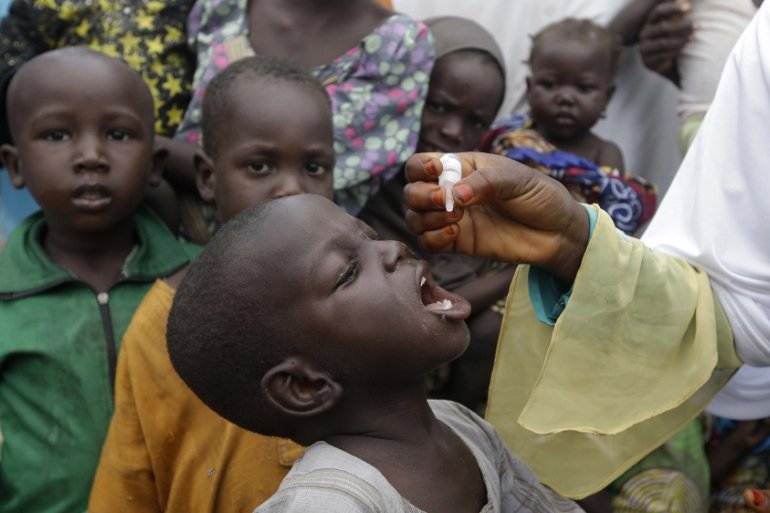Polio in Nigeria tells a story of resilience, determination and the power of public health efforts. Nigeria has been the epicenter of the global polio crisis, particularly in Africa, for decades. In 2012, the country accounted for more than half of the world’s polio cases, and eradicating the disease looks like an uphill battle complicated by conflict, mistrust, and logistical challenges. Ta.
But through collective effort and unwavering commitment, Nigeria has achieved what many once thought impossible. In August 2020, the country was declared free of wild poliovirus.
But as we celebrate this milestone, we must recognize that the fight is far from over. Nigeria’s experience with polio provides important lessons for the future, both in continuing to rid the country of polio and in ensuring that no Nigerian child ever suffers from this preventable disease again.
Nigeria’s path to eradicating wild polio has been fraught with challenges. Polio persisted for decades in the northern regions, where the health infrastructure was weakest. Conflicts have allowed the virus to persist in areas such as Borno state, where Boko Haram and other militant groups have disrupted vaccination efforts.
Additionally, there are long-standing fears and misinformation surrounding vaccines, which led to boycotts of polio vaccination campaigns. At its peak in 2003, some religious leaders in the north claimed that the polio vaccine was a Western plot to sterilize Muslim children, resulting in a significant setback in polio eradication efforts.
But thanks to the tireless efforts of health workers, community leaders, Muslim leaders and global partners such as WHO, UNICEF and Rotary International, the tide is beginning to turn. Grassroots efforts were key. Health workers went door to door, often at great risk, to ensure all children were vaccinated. Religious and traditional leaders worked hard to dispel vaccine myths and promote vaccination. These efforts bore fruit and after many setbacks and false hopes, Nigeria achieved polio-free status in 2020 and celebrated a continent free of wild poliovirus along with other African countries.
Although wild polio has been eradicated in Nigeria since 2016, the fight against polio is far from over. Vaccine-derived poliovirus (VDPV) infections continue to occur in some areas of the country. VDPV can occur when the attenuated virus used in the oral polio vaccine (OPV) circulates and mutates in areas with low immunization coverage. Although this type of virus is different from wild poliovirus, it can still cause paralysis.
Nigeria’s health system is under constant strain due to a variety of challenges, making it even more important to maintain high vaccination rates to prevent a resurgence. There are fears the coronavirus pandemic has disrupted routine immunization programs, widening vaccination gaps and putting Nigeria’s hard-won victory at risk.
Nigeria’s polio eradication success is fragile and requires continued vigilance, investment and education to sustain it. This means ensuring that every Nigerian child has access to both the inactivated polio vaccine (IPV) and the oral polio vaccine (OPV) until polio is completely eradicated from the world. .
It also means addressing the fundamental challenges that make polio eradication so difficult in the first place: poor access to health care, conflict, insecurity and misinformation, and which the Nigerian government is already working to prevent. There has been great dedication to vaccination, but more needs to be done. Nigeria’s borders are porous and the country remains at risk as long as polio remains endemic in other parts of the world. Continued collaboration with neighboring countries, influential religious leaders and the World Health Organization is essential to ensure that polio cases are not re-imported.
Public confidence in vaccines must remain high. The success of polio eradication efforts in Nigeria is proof of what can be achieved when communities are involved and local leaders take the lead in public health campaigns. Strengthening these relationships is critical to protecting future generations.
Nigeria’s fight against polio is both a symbol of hope and a cautionary tale. It shows that change is possible even in the face of great adversity, including conflict, misinformation, and logistical challenges. The country’s victory against wild polio is a source of pride not only for Nigerians but also for the entire global health community.
But it’s also a reminder that complacency is dangerous. The gains Nigeria has made could easily be reversed if vaccination efforts stall or the focus shifts from keeping the population safe. Polio is not completely gone and we must remain vigilant until the virus is eradicated everywhere.
Nigeria’s success proves that with the right support, political will and community involvement, even the toughest health challenges can be overcome. But as the fight continues, it is up to all of us to keep Nigeria, and the world, free of polio forever.
Umul Kultum wrote from Abuja via (email protected)

